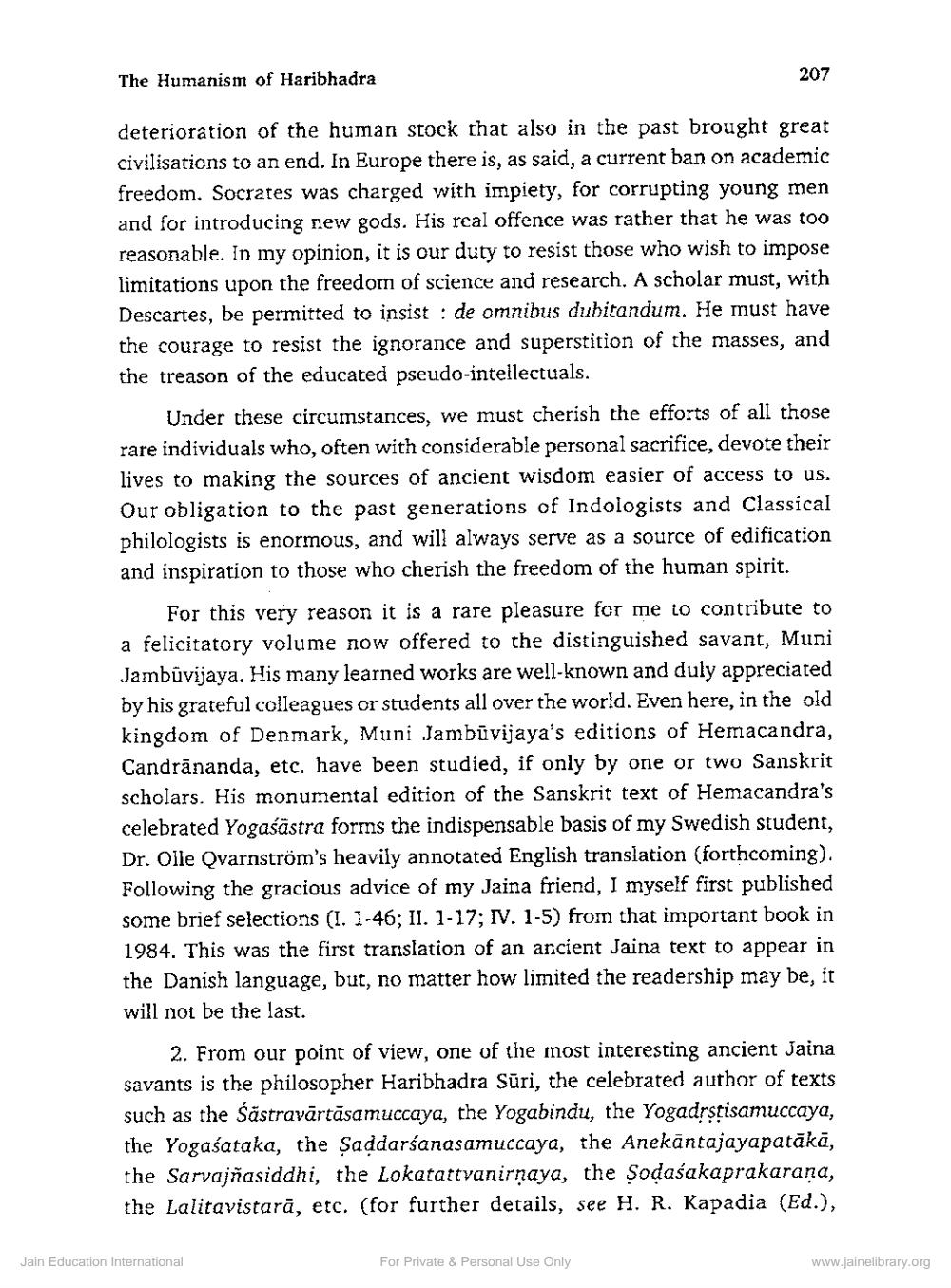________________
The Humanism of Haribhadra
207
deterioration of the human stock that also in the past brought great civilisations to an end. In Europe there is, as said, a current ban on academic freedom. Socrates was charged with impiety, for corrupting young men and for introducing new gods. His real offence was rather that he was too reasonable. In my opinion, it is our duty to resist those who wish to impose limitations upon the freedom of science and research. A scholar must, with Descartes, be permitted to insist : de omnibus dubitandum. He must have the courage to resist the ignorance and superstition of the masses, and the treason of the educated pseudo-intellectuals.
Under these circumstances, we must cherish the efforts of all those rare individuals who, often with considerable personal sacrifice, devote their lives to making the sources of ancient wisdom easier of access to us. Our obligation to the past generations of Indologists and Classical philologists is enormous, and will always serve as a source of edification and inspiration to those who cherish the freedom of the human spirit.
For this very reason it is a rare pleasure for me to contribute to a felicitatory volume now offered to the distinguished savant, Muni Jambūvijaya. His many learned works are well-known and duly appreciated by his grateful colleagues or students all over the world. Even here, in the old kingdom of Denmark, Muni Jambūvijaya's editions of Hemacandra, Candrānanda, etc. have been studied, if only by one or two Sanskrit scholars. His monumental edition of the Sanskrit text of Hemacandra's celebrated Yogaśāstra forms the indispensable basis of my Swedish student, Dr. Olle Qvarnström's heavily annotated English translation (forthcoming). Following the gracious advice of my Jaina friend, I myself first published some brief selections (I. 1-46; II. 1-17; IV. 1-5) from that important book in 1984. This was the first translation of an ancient Jaina text to appear in the Danish language, but, no matter how limited the readership may be, it will not be the last.
2. From our point of view, one of the most interesting ancient Jaina savants is the philosopher Haribhadra Sūri, the celebrated author of texts such as the sästravārtāsamuccaya, the Yogabindu, the Yogadrstisamuccaya, the Yogaśataka, the Saddarśanasamuccaya, the Anekāntajayapatākā, the Sarvajñasiddhi, the Lokatattvanirnaya, the Sodaśakaprakarana, the Lalitavistarā, etc. (for further details, see H. R. Kapadia (Ed.),
Jain Education International
For Private & Personal Use Only
www.jainelibrary.org




